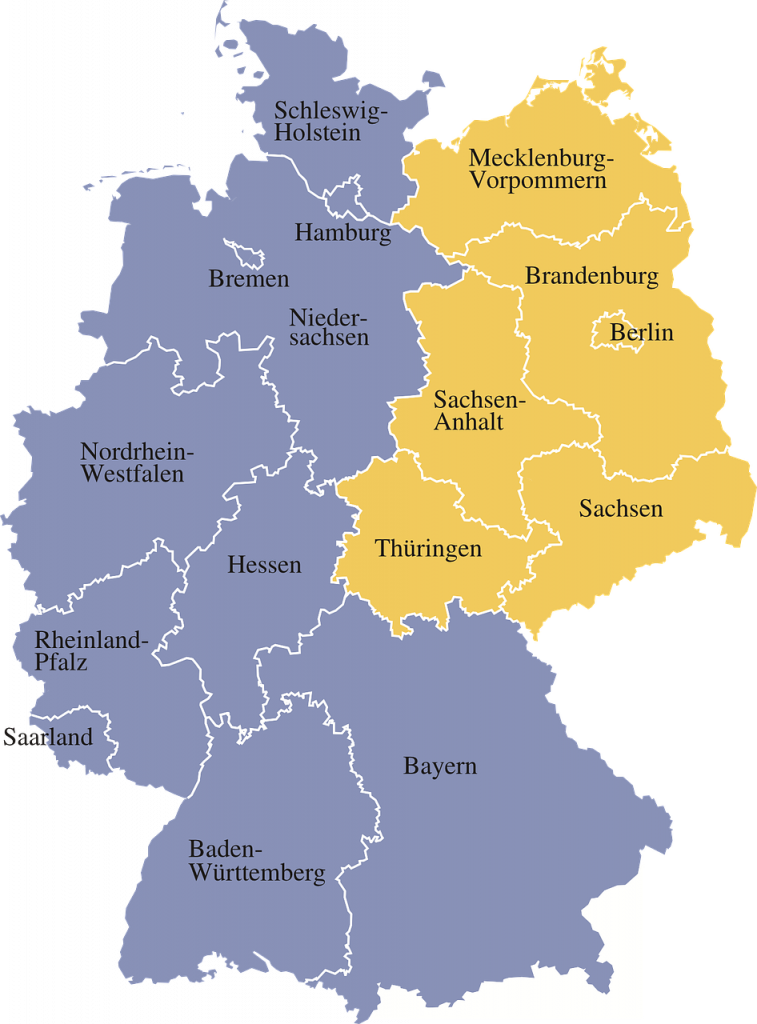The Germans on the Germans: East & West Posted by Constanze on Nov 13, 2019 in Language
Hallo! Every country has names for people from different regions within that country. Over the next few posts we’ll look at what words Germans have for other Germans, and why.
In this post we will look at what people from eastern Germany call people from western Germany, and vice-versa. A follow-up post will look at north and south Germany.
*Please note: The point of learning about these words is not to encourage anybody to use them, but to have an analytical approach to them: what do these words mean from a linguistic perspective, and why are they used? Where/how did they originate? This way, if you ever hear/see them used in the German language, you will have an understanding of what they mean and know not to repeat them yourself.
East Germany & West Germany

- Image via Pixabay
Although Germany has been reunited for 30 years now (the 30th anniversary of the fall of the Berlin Wall was on 9th November 2019, in fact!), there is still some tension between the areas that formerly made up east Germany and the areas that formerly made up west Germany. A lot of this is to do with how, when the country reunited, the west absorbed the east, essentially eradicating the culture of east Germany. Not much changed for former west Germany after reunification, but the former DDR underwent a lot of changes, which caused some friction between the two. For the older generation, at least, there are still significant differences between an ‘east German’ and a ‘west German’, as these interesting words will show.
Ossi
This is the name Germans living in former western states give to Germans living in former eastern states. It comes from the German word ost, meaning east. Another way you can say someone or something is ‘east German’ is with the more neutral word, ‘ostdeutsch’.
Wessi
This is the name Germans living in former eastern states give to Germans living in former western states. It comes from the German word west, meaning west. Another way you can say someone or something is ‘west German’ is with the more neutral word, ‘westdeutsch’.
Wossi
This is a combination of the words Wessi and Ossi, often used to refer to couples where one partner is from a western state and the other is from an eastern state, or to a child who was born of this couple. Wossi is a Kofferwort (portmanteau word). If you’d like to read more about German portmanteau words, where two or more words are mashed together to create a new one, click here.
Besserwessi
Besserwessi (also a Kofferwort) is a play on the words Wessi and der Besserwisser, which is the German word for a know-it-all. Besserwessi came into the German language following reunification, as many former east Germans perceived west Germans as extremely arrogant and patronising towards them once the country had reunited.
I hope this has been interesting. I always find it fascinating when history and language mix! Next time we will look at words that north Germans use for people from the south, and vice-versa.
Bis bald!
Constanze

Build vocabulary, practice pronunciation, and more with Transparent Language Online. Available anytime, anywhere, on any device.



